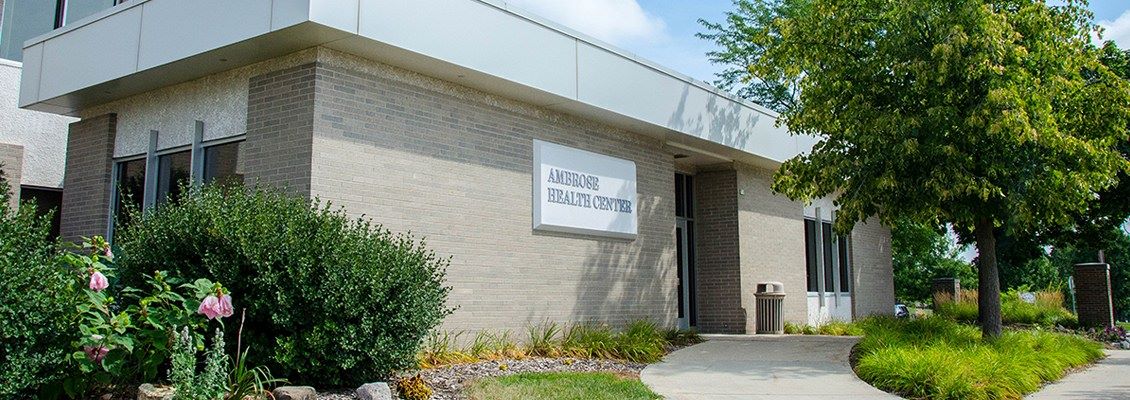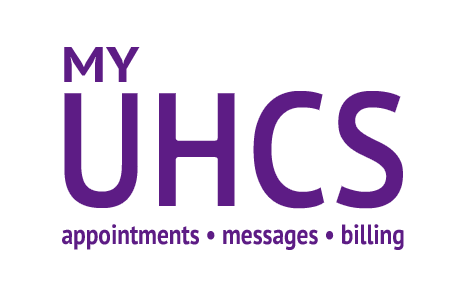TransHealth
Wellness Information
UHCS Services
UHCS strives to support our trans and gender diverse students. We have a strong commitment to serving the diverse UW-Whitewater community and recognize that discrimination, oppression, prejudice, implicit bias, and power and privilege influence communities. These factors impact emotional and physical health, academic achievements, and connections with others. At UHCS, we aim to alleviate these factors and have an established TransHealth Treatment team, have gender neutral bathrooms, and our staff have received training in working with students who identify across the gender spectrum, including students who are transitioning. When you come to UHCS, you are able to check in using your last name, and you are able to write in the name you use and your pronouns on the intake forms.
- Hormone Replacement Therapy (HRT)
- What happens at the sessions with the counselor?
- What happens at the appointments with the medical provider?
- Beginning HRT at UHCS
- Approximate cost of HRT at UHCS
Hormone Replacement Therapy (HRT)
University Health and Counseling Services works as an integrated team that aims to provide high quality care to students at UW-Whitewater. Because of this, students seeking hormone replacement therapy (HRT) are not required to obtain a letter from a mental health provider prior to starting HRT. However, you are asked to meet with a counselor to have an additional support with beginning HRT. If you already have a counselor, you will not be asked to meet with a new counselor at UHCS. Students may choose to meet with a counselor first, or you may begin with a medical professional. When you meet with a medical professional at UHCS, you will be asked to review and sign informed consent regarding the particular medication you are pursuing (feminization or masculinization).
What happens at the sessions with the counselor?
Making your first appointment to attend counseling is often the most difficult. When you call, you will be asked to provide your student ID number. When you arrive to the 2nd floor of UHCS, check in at the front desk with your last name. You'll be asked to complete some initial paperwork which will ask a variety of different questions, including your preferred name, gender identity, and sexual orientation. The forms use a drop down menu that offers the following options for gender identity: woman, man, transgender, and self-identify. In the self-identify option, you may write in your identity.
After you complete the paperwork, an initial assessment is completed by you and the counselor. For most students, counseling is completed through UHCS. In order to make on-campus counseling available to the greatest possible number of students, individual and couple's counseling is limited to 14 sessions per academic year.
A meeting with a medical provider is also part of the process for beginning HRT at UHCS.
What happens at the appointments with the medical provider?
First Appointment:
- Review your health status and history, and sexual history and practices.
- Review your expectations for transitioning and the providers' expectations (lab work, clinic visits, and the prescription).
- Review informed consent.
- The medical provider will do a medical exam that will not require a genital exam unless you have specific questions or request this. The exam will also include weight and blood pressure.
- You will have blood drawn for baseline labs and to look for any risks that have arisen from history and also for STI testing indicated in your history.
- You will collect either a urine or front hole swab for some STI testing.
Second Appointment:
- Final review of consent, answering questions, etc.
- Review lab results and any potential concerns.
- Discuss medications, what they are, what they do, side effects, risks from long term use, how they are taken, availability of teaching for self-injection (if applicable), how they are monitored and provider expectations for monitoring, and discussing "red flag" symptoms (those that should cause alarm and immediate seeking of care).
- Discuss routine preventative care.
- Discuss continuing communication with mental health provider on the team.
- Discuss schedule of future visits and what will occur at the next visit(s).
- Expect 1-2 visits with your medical provider before beginning HRT.
- Plan on being a student at UW-Whitewater for a minimum of 6 months and not being away from campus for an extended amount of time when first beginning treatment (summer break).
- Be willing to establish or already have a relationship with a mental health provider who has comfort and knowledge about transitioning.
- Be willing to have lab work done, attend regular clinic appointments, and be able to afford the costs of hormone replacement therapy.
Approximate Cost of HRT at UHCS
(costs will vary at other clinics and based on individual needs):
Transwomen (MTF) lab costs
Baseline labs:
Lipids (Cholesterol): $14.00 (and at 12 months)
Chemistry Panel (Blood sugar, liver and kidney functions): $15.00
Complete Blood Count (CBC): $10.00
Subsequent labs at 1 month and every 3 months thereafter, at the discretion of the provider (including the above):
Luteinizing Hormone (LH): $38.00
Testosterone: $27.00
Estradiol: $24.00
Lab at 18 Months:
Prolactin $21.00
Transwomen (MTF) Hormonal Therapy:
Estrogen:
Pills: $3-$5 for 30 day supply
Patches: $35-$50 for 30 day supply
Shot: $45-88 for 30 day supply
Anti-androgen:
Spironolactone pills: $11-$15 for 30 day supply
Finasteride pills (alternative): $8-$25 for a 30 day supply
*The prices listed above are an estimate of out of pocket costs with no insurance and a GoodRX coupon. Prices may be lower if covered by an individual's insurance
Transmen (FTM) lab costs:
Baseline labs:
Lipids (Cholesterol): $14.00 (and at 12 months)
Chemistry Panel (Blood sugar, liver and kidney functions): $15.00 ( and every 3 months therafter)
Complete Blood Count (CBC): $10.00 (and every 3 months therafter)
Pregnancy Test, Urine: $10
Subsequent labs at 1 month and every 3 months therafter (including the above):
Testosterone: $54.00
Transmen (FTM) Hormonal Therapy:
Testosterone:Shot: $10 for 2 week supply, $70 for 10 week supply (State insurance usually covers the testosterone shot with a small co-pay, depending on the particular insurance plan)
Transdermal Gel (pump): $32-$50 per month depending on insurance coverage; $160 - $400 per month without insurance
Patches: $10-$45 per month depending on insurance coverage; $600 per month without insurance
Resources
- OutReach LGBTQ+ Community Center
- UW-W TransHealth Brochure
- UW-W Name Change Form
- UW-W PB Poorman Pride Center
- Center of Excellence for Transgender Health
- ID Document Guide by State
- Ryan Sallans
Disclaimer
All information on this website is written by UHCS professional staff unless otherwise noted. No data is collected on visitors to this site. Financial Support for this web site is provided by University Health & Counseling Service, Division of Student Affairs, University of Wisconsin-Whitewater. This web site does not accept advertising.
This site is not meant to replace the advice of a health care or counseling professional. You should not rely on any information on these pages, or information generated for you by this site, to replace consultations with qualified professionals regarding your own specific situation. Some links take you to a source outside of UHCS. The owners of that site, not UHCS, are responsible for the content.



